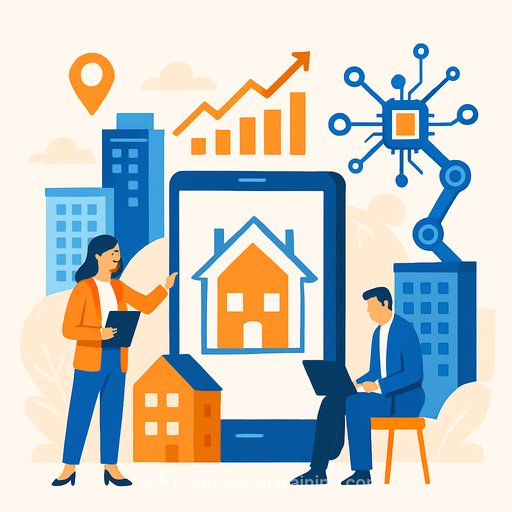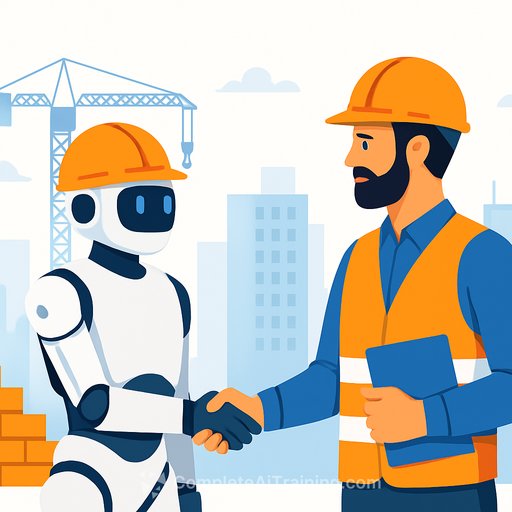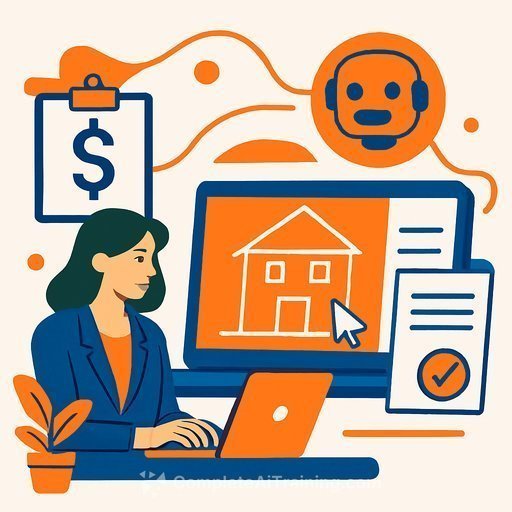Property Tech Transforming Real Estate in 2025
The real estate sector has long lagged in adopting digital technology. That’s changing quickly. Property Technology, or PropTech, is bringing faster, smarter, and more transparent tools to buyers, sellers, and agents. This shift simplifies processes and cuts down inefficiencies across the board.
Artificial Intelligence: The Core of Modern Real Estate
AI is reshaping how buyers discover homes and how professionals analyze market trends. Tools powered by AI offer personalised property suggestions based on preferences and online activity, improving accuracy over time. Investors use AI to spot high-return properties and predict price trends, while lenders and insurers speed up risk assessments.
Agencies automate repetitive tasks such as lead generation and document checks. Crucially, AI’s predictive models estimate property values, identify emerging growth areas, and forecast maintenance needs before problems surface.
Virtual and Augmented Reality: Touring Without Travel
VR and AR have changed property viewing. Buyers can take immersive virtual tours on phones or headsets, cutting the need for multiple physical visits. AR apps let users visualise furniture placement and renovation outcomes in real time, streamlining decisions.
These technologies are especially useful in luxury and international markets, and they improve accessibility for buyers with mobility challenges. Agents can serve global clients more efficiently, reducing logistical hurdles.
Blockchain: Building Trust and Transparency
Real estate transactions often involve heavy paperwork and delays. Blockchain creates secure, transparent, and tamper-proof digital records to address these issues. Property titles digitised on decentralised ledgers are easier to verify and protect against fraud.
Smart contracts automate deal execution once conditions are met, cutting out intermediaries like banks and lawyers. In some regions, blockchain enables tokenisation, allowing investors to buy shares in high-value properties, broadening market access.
IoT and Smart Homes: Connected Living Spaces
The Internet of Things powers smart homes and commercial buildings that respond to their environment. Smart thermostats adjust settings based on occupancy, leak sensors alert to plumbing issues early, and integrated security systems provide real-time control via smartphones.
In commercial real estate, IoT tools optimise energy use, monitor air quality, and support predictive maintenance to reduce costs. This data appeals to buyers and tenants focusing on health, sustainability, and convenience.
Big Data and Predictive Analytics: Insight from Information
Real estate generates vast data—from listings and demographics to mortgage and zoning info. Big data tools analyze this to guide decisions. Developers select locations based on demand forecasts and infrastructure growth, while agents refine pricing through comparative analysis.
Financial institutions use predictive models to evaluate loan risks and property value changes, helping reduce guesswork and improve investment confidence.
End-to-End Digital Platforms: Simplifying Transactions
Online real estate platforms now offer full-service ecosystems. They provide virtual tours, connect buyers with agents, offer mortgage pre-approvals, legal support, and digital signatures—all in one place. This cuts transaction steps and lets buyers close deals from home.
Agents benefit from wider reach and streamlined operations with tools for scheduling, customer management, and reporting. These platforms are popular with millennials seeking mobile-first, fast solutions.
Drones: New Perspectives from Above
Drones have become essential for marketing and surveying. Aerial videos showcase large estates and commercial sites, while drones monitor construction progress and safety remotely. Their ability to capture hard-to-reach angles quickly and cost-effectively makes them valuable for residential and commercial projects alike.
Green Technology and Sustainable PropTech
Eco-friendly living is a priority for many buyers. PropTech includes energy tracking systems that monitor consumption in real time, supporting greener habits. Smart grids, solar panels, and automated waste management are increasingly common in new builds.
Developers use tools to measure the carbon footprint of construction and adjust plans to meet environmental standards. Sustainability ratings and energy certifications are now key factors for buyers and investors evaluating long-term value.
The fusion of real estate and technology is essential today. As digital natives become the majority of buyers and sellers, demand for smarter, faster, and safer solutions will only grow. PropTech is improving access to information, increasing transaction trust, and creating user-friendly experiences. Every stage of property management and sales is evolving. Agents and developers adopting these changes position themselves for success in the future.
FAQs
- What is Property Tech (PropTech)?
PropTech uses technology like AI, blockchain, VR, IoT, and big data to improve efficiency, transparency, and user experience in real estate transactions. - How is artificial intelligence used in real estate?
AI personalises property recommendations, automates admin tasks, predicts market trends, and estimates property values, helping buyers and professionals make informed decisions. - What role do virtual and augmented reality play?
VR offers remote property tours, while AR helps visualise furniture and renovations, reducing the need for physical visits and speeding up decisions. - How does blockchain improve property transactions?
Blockchain secures title records and supports smart contracts that automatically execute deals, reducing fraud and cutting out intermediaries. - What benefits do IoT and smart home tech provide?
IoT manages energy, security, lighting, and temperature through connected devices, enhancing comfort, safety, and operational efficiency. - Why is big data important in real estate?
Big data analyses buyer behaviour, pricing, and development trends to guide investors, agents, and developers in making data-driven choices. - What are examples of PropTech platforms?
Platforms offering listings, virtual tours, legal aid, mortgage tools, and agent connections simplify the entire property journey in one place.
Your membership also unlocks:






